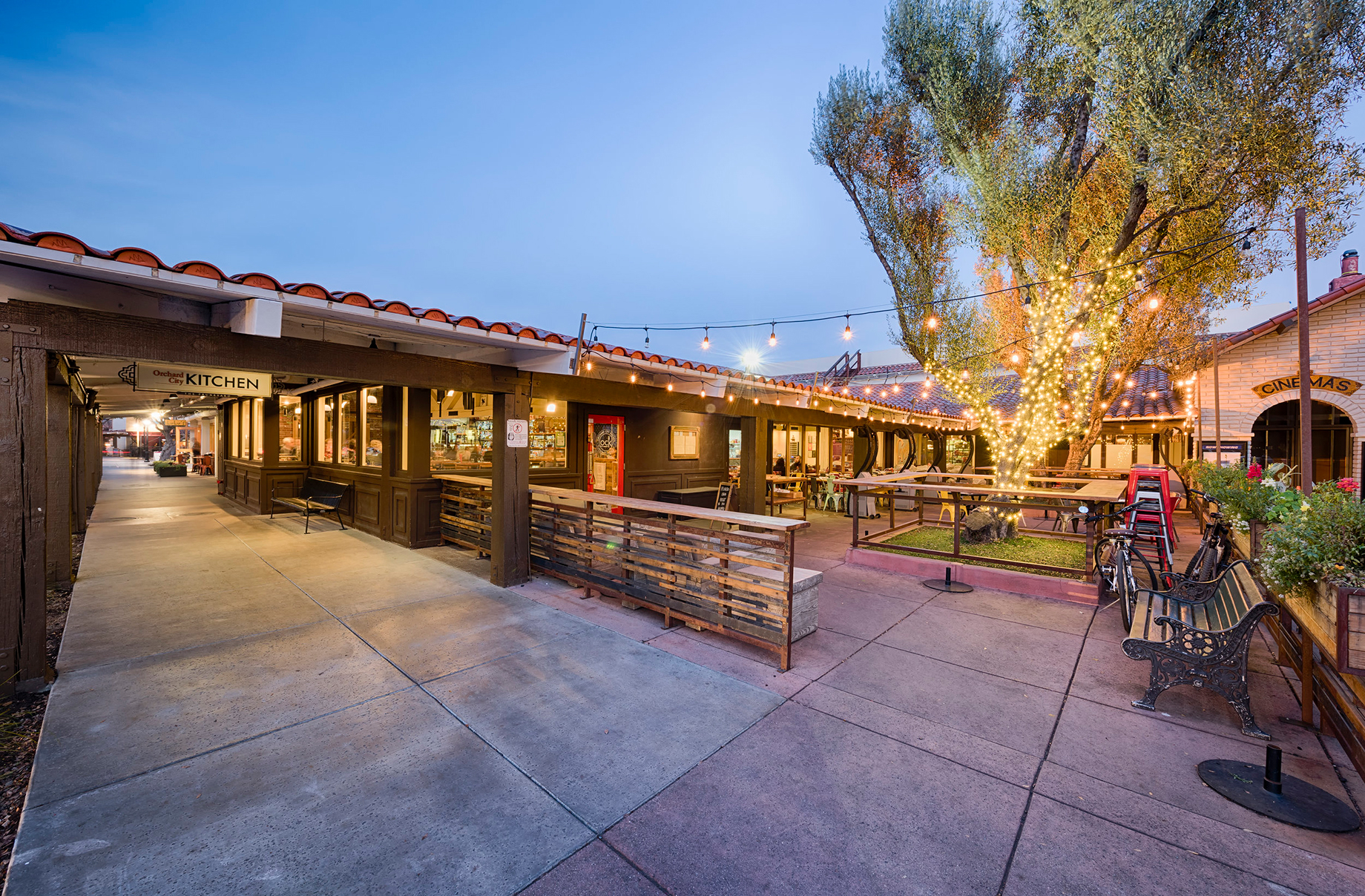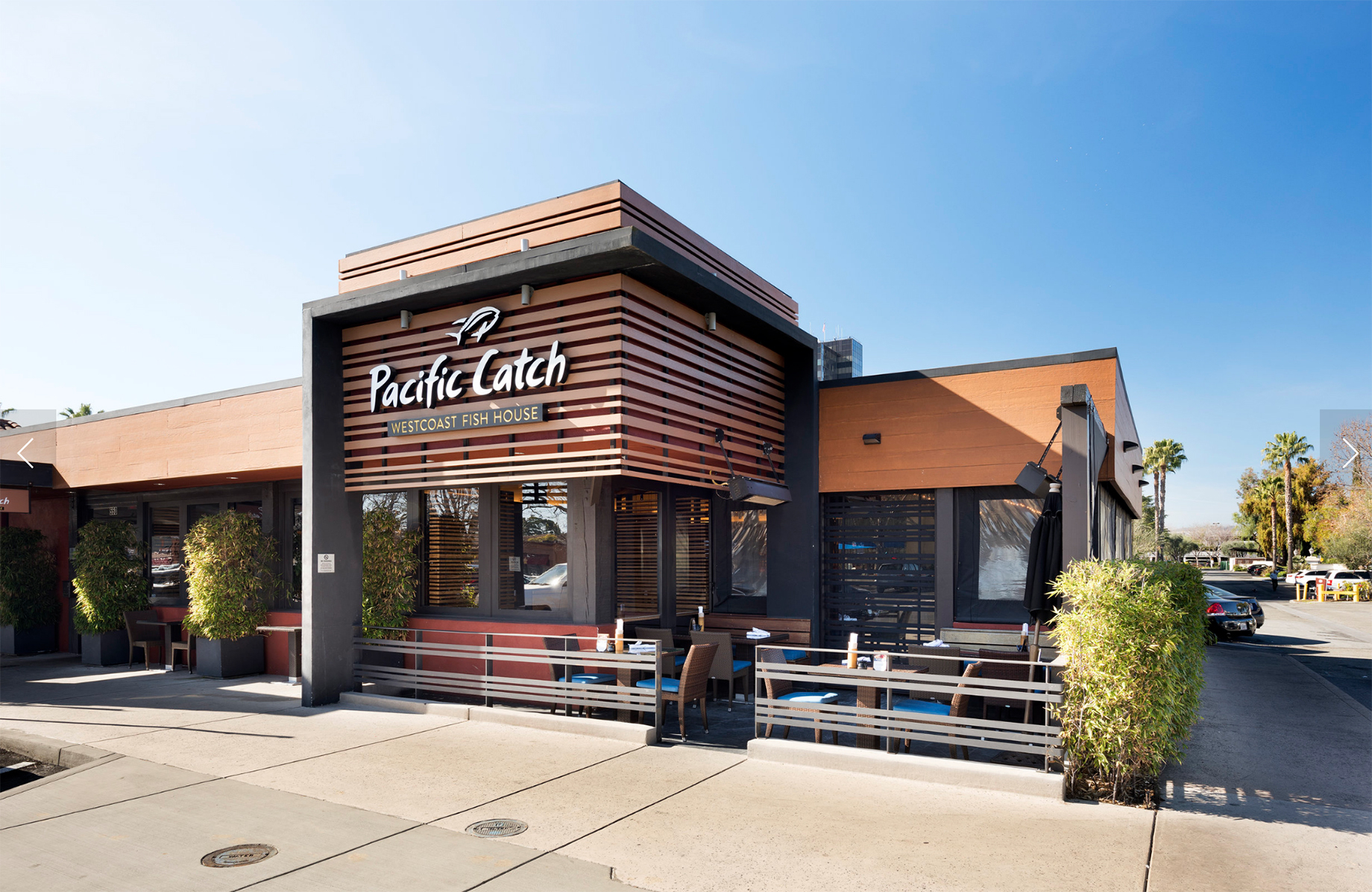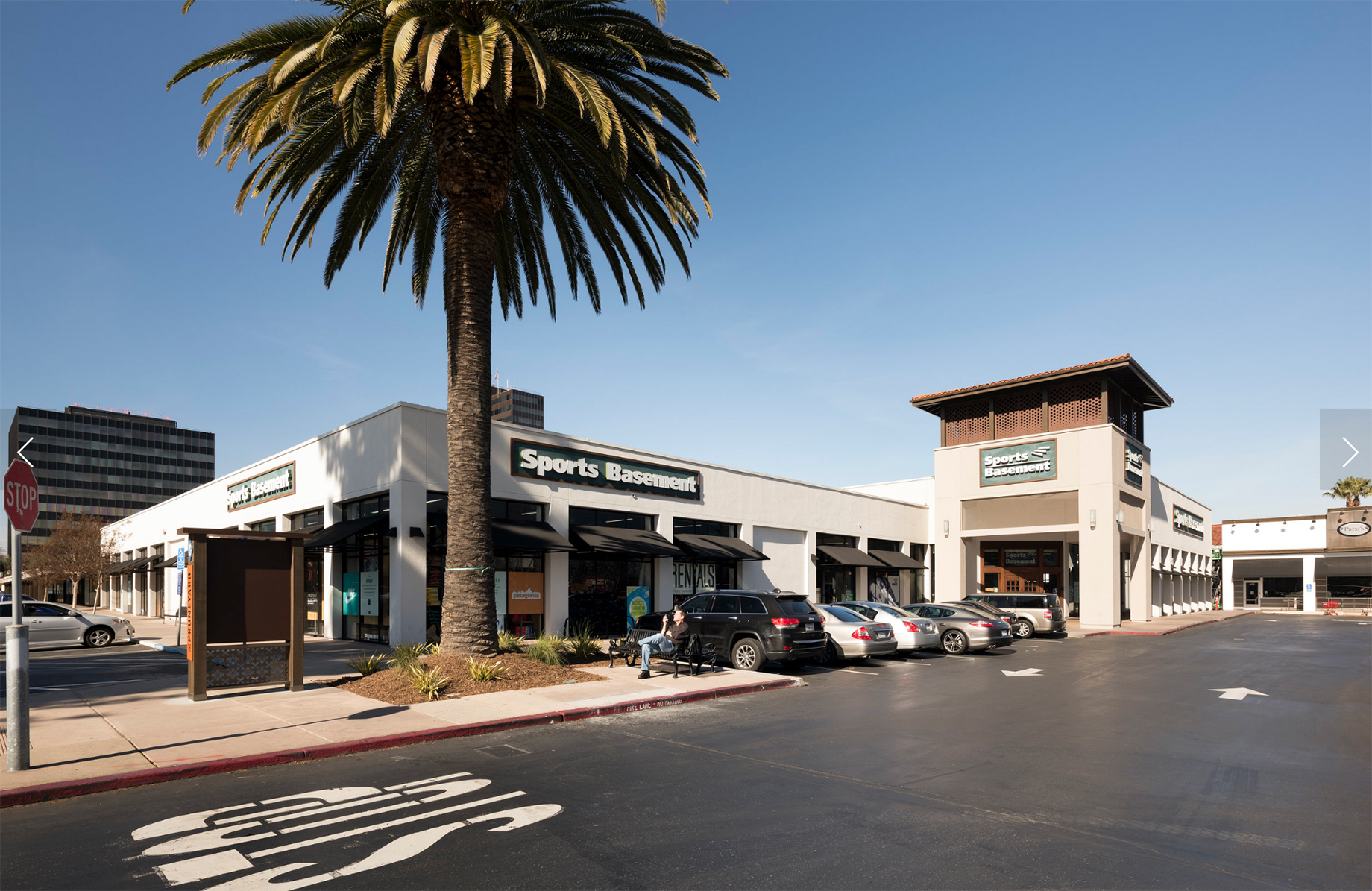Renovations are finally coming together at The Pruneyard, an iconic Silicon Valley mixed-use project in the affluent West Valley community of Campbell, comprising a 253,000-square-foot shopping center developed in 1969, three office buildings totaling 365,000 square feet and a 171-room Double Tree by Hilton.

Equity Office Properties owned the property from 1999 and then sold it to San Francisco–based Ellis Partners in December 2014 for $280 million. Ellis Partners also owns Town & Country Village, a shopping center in Palo Alto, Calif., that was built in 1953 and which the company has renovated over several years.
“We have a history of purchasing retail properties that are longstanding retail destinations,” said James F. Ellis, a managing partner. “This property had not really been remerchandised or renovated in over 20 years, and we were quite enamored of what we saw on the ground. The physical environment there communicated a unique look and feel for the type of retail project that we like to do.”
Like other 1970s-vintage shopping centers, Pruneyard has endured through major changes in the surrounding community. “We really saw the potential to create a very unique experience-based environment that could be something that would allow us to redirect the attraction of the center to the current demographics, versus the demographic that existed 20 years ago in the West Valley,” said Ellis.

Working with the city of Campbell over a two-year period, Ellis won approval for a phased redevelopment. The first phase, which included physical renovation of the existing center, was completed last month. The second phase, now under construction, will see a 5,500-square-foot building on an outparcel. A third phase will involve construction of 50,000 square feet of additional smaller retail buildings. The firm has also proposed a third office tower, to be built over the next two or three years.
To facilitate future financing of the project by institutional investors, Ellis worked with the city of Campbell to win approval for subdividing the 27-acre property into three parcels based on the use types. This proved to be the firm’s biggest challenge in the redevelopment.
“Like many places when the so-called ‘out-of-town’ developer comes in with a vision, there is a lot of resistance to that change,” said Caroline Morris, a partner and senior vice president of asset management at the firm. “This property is an icon in the community, and we very painstakingly built relationships with various stakeholders, the planning commission and the planning department, and the city officials, because everybody had an opinion, and everybody cared very, very much about this place that we had invested in.”

The Ellis Partners game plan for the property included completely reconsidering which retail tenants would be most compatible with the office and hotel uses. Changing up the center’s food component was a core ingredient. “The right kind of food and the right kind of mix of food offerings, including everything from sit-down restaurants to very small fast-casual, is a critical component of any shopping center today that has a chance of surviving in this retail disruption we are experiencing,” said Ellis.
Among the new tenants are Asian Box, a “farm-to-box” Asian street-food concept; Burger Lounge, a fast-casual concept featuring grass-fed burgers and organic salads; Mendocino Farms, an artisan sandwich market that sources seasonal ingredients from local farmers; and Teaspoon, which serves custom craft beverages, boba tea and shaved ice.
Another major component of the redevelopment included taking advantage of a large, grass-covered central plaza. “It was one of the things that, when we first toured the property, we saw as a hugely underutilized area,” said Ellis. “We knew that this shopping center was a very important part of the city of Campbell, and what we saw was an opportunity to try to bring this really squarely back into the community by creating a significant new space for the community.”
“Among the key take-aways from the company’s redevelopment playbook was meeting with each tenant to share ideas”
It also presents an opportunity for the center’s retailers. “It gives us an opportunity to do the kind of place-making that is so critical for shopping centers like ours,” said Morris. “Having that plaza will allow us, as well as the tenants, to take their concepts and their ideas and their events and their programming outside where people want to be and where people want to hang out.”
Ellis noted that the firm tries to work with and retain many of the existing tenants that are still viable. At Pruneyard this includes relocating and reconfiguring one of its stalwart anchor tenants, Trudy’s Brides & Special Occasions, a mainstay for 43 years.
“It was really rewarding to be able to work with them to have them see our vision and to be able to not only implement a very successful reconfiguration and renovation of their store, but also have the opportunity to remerchandise our shopping center around their use, so that they continue being an even stronger regional destination, which they have always been,” said Ellis.
Among the key take-aways from the company’s redevelopment playbook was meeting with each tenant to share ideas. “We worked with every anchor tenant in the shopping center to have some kind of renovation of their store,” said Morris. “We have everybody on board looking to the future of this center.”
By Ben Johnson
Contributor, Commerce + Communities Today


